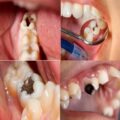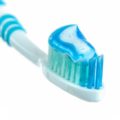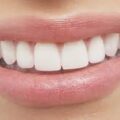Which hygiene claim is supported by research?
A. Regular professional teeth cleaning improves dental health.
B. Brushing with a fluoride toothpaste helps prevent cavities.
C. There are no benefits to handwashing.
D. Antibacterial soap prevents disease better than regular hand soap.
The Correct Answer to This Question is Option: B
The discovery during the first half of the 20th century of the link between natural fluoride, adjusted fluoride levels in drinking water and reduced dental caries prevalence proved to be a stimulus for worldwide on-going research into the role of fluoride in improving oral health. Epidemiological studies of fluoridation programmes have confirmed their safety and their effectiveness in controlling dental caries.
Major advances in our knowledge of how fluoride impacts the caries process have led to the development, assessment of effectiveness and promotion of other fluoride vehicles including salt, milk, tablets, toothpaste, gels and varnishes. Fluoride is a mineral found naturally in water, soil, and air. Almost all water contains some fluoride, but fluoride levels can vary depending on where your water comes from.
It’s added to toothpaste and water supplies because fluoride can help:
- prevent cavities
- strengthen weakened tooth enamel
- reverse early tooth decay
- limit the growth of oral bacteria
- slow the loss of minerals from tooth enamel
Fluoride toothpaste contains a higher concentration of fluoride than fluoridated water does, and it’s not meant to be swallowed.
Supporting Studies
According to a study cited by Cochrane, children who brush their teeth at least once a day with a toothpaste that contains fluoride will have less tooth decay. The review of trials found that children aged 5 to 16 years who used a fluoridated toothpaste had fewer decayed, missing and filled permanent teeth after three years (regardless of whether their drinking water was fluoridated). Twice a day use increases the benefit.
According to the CDC, fluoride use is one of the main factors responsible for the decline in prevalence and severity of dental caries and cavities (tooth decay) in the United States. Brushing children’s teeth is recommended when the first tooth erupts, as early as 6 months, and the first dental visit should occur no later than age 1 year (2–4).
However, ingestion of too much fluoride while teeth are developing can result in visibly detectable changes in enamel structure such as discoloration and pitting (dental fluorosis). Therefore, CDC recommends that children begin using fluoride toothpaste at age 2 years. Children aged <3 years should use a smear the size of a rice grain, and children aged >3 years should use no more than a pea-sized amount (0.25 g) until age 6 years, by which time the swallowing reflex has developed sufficiently to prevent inadvertent ingestion. READ: Importance Of Personal Hygiene






